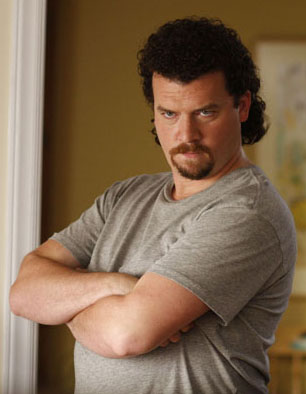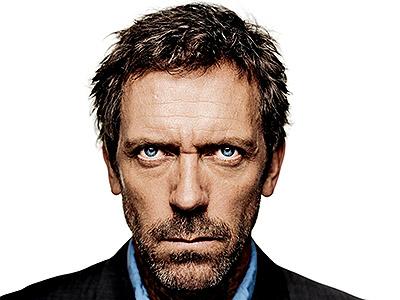 People have asked me where I came up with a character like Barry Glick: a middle-aged Superhero with a beer gut, a penchant for redheads, and a smart-ass attitude? Notice I’m not even mentioning the sense of overbearing entitlement …
People have asked me where I came up with a character like Barry Glick: a middle-aged Superhero with a beer gut, a penchant for redheads, and a smart-ass attitude? Notice I’m not even mentioning the sense of overbearing entitlement …
Barry is a product of watching a season of East Bound and Down starring Danny McBride as Kenny Powers, and marveling at the lure of Gregory House, M.D.
Even though Barry’s attitude and physical characteristics are based on Kenny Powers, the idea of Barry himself was modeled after House.
I didn’t watch a single episode of House for the first 4-5 years, on principle. I said to myself, “Why do I want to watch a show about a guy who’s mean to everyone?”
For me, it seemed to be the fiction equivalent of Reality TV — creating conflict where there was none simply for entertainment.
And I abhor that.
But then, as House continued to last year after year, and I learned that “conflict” is the basis for “story” everywhere, that there is no “story” without it … I got curious. Then I began to wonder if I was missing out on something special, because the thing was in its 7th year.
True, crap TV like Full House made it eight seasons, but thankfully, that show was the exception instead of the norm.
And one thing tickled my curiosity more than any other: How could a show base its protagonist (hero) on a guy who was a complete dick? Wasn’t the protagonist supposed to be likeable?
So I started watching House from the first episode. And from the first few minutes, I was hooked.
Not only was the writing top-notch, the character of Gregory House mesmerized me. He was an ass to everyone around him, even his closest friends. And yet, I couldn’t stop pulling for him. I couldn’t stop liking him. I was drawn to him more than I had been to any other character … ever!
Why? How did they do that to me? I needed to learn what the driving force behind House was and how I could harness it. I needed to know the secret.
And do you know what I discovered as I binge-watched eight seasons of House?
There were certain characteristics that made him endearing.
 House’s Truth
House’s Truth
House was indeed a complete dick, and he lied to everyone. All the time. But he rarely lied to himself. We need a narrator we can trust. We may not trust what he’s saying, but with House, we could always trust that he was acting in the best interests of “the puzzle.” He had a need to solve a riddle, even if it meant personal destruction. The other characters knew this and used it to their advantage. We knew this also and came to expect that every medical delimma the show presented would end up being a barely-solvable puzzle. And remember, it’s never Lupus.
House’s Filter
Or should I say “lack of filter?” House said what he thought, and he lied constantly if he could justify the end result. The means to get there didn’t matter, only the result. So he said whatever he felt necessary. And deep down, we all wanted to say some of the things he said. But because of social propriety and niceties, we don’t. And that’s one of the reasons we connected with House. He said them for us.
House’s Fix
House was broken. He needed to be fixed, whether he admitted it or not. He needed to become a better person, to tone down his rough edges. And as such, he was a project for the other characters. They felt the need to “fix” him (after they realized they couldn’t control him). We all felt the need to fix him, which brings me to the last characteristic …
House’s Humanity
We knew what to expect every episode. House would be stumped by a difficult medical case, and he was stop at nothing to figure out the puzzle. Along the way, he would battle his inner demons, he would confront his outer demons, and he would pull through. Sometimes, just barely. But on the sidelines, we were hoping he would find his humanity. And every once in a while, he would give us a small glimpse of it. And we were thrilled. He would never admit he cared about anyone but himself, and he stayed true to character … but deep down, we knew he cared. We knew it, and each week we craved another sign that House’s humanity existed. And then, on the final episode of the final season, we were given the keys to the kingdom … and House STILL remained true to character!
So … in short, I analyzed (over-analyzed) the House TV show, and created my Barry Glick character on the same principles as House.
He’s always true to himself. He says what he wants and does what he wants (many times we agree with him but won’t admit out loud). He’s broken in more ways than I can count. And if pushed to do the right thing, he will eventually cave in. But he won’t admit it. He’ll fabricate a reason to maintain his “dickish” facade.
Barry is more than just a simple protagonist or a hero … he’s a super protagonist and a Superhero.